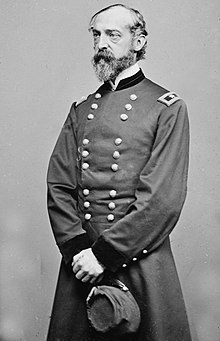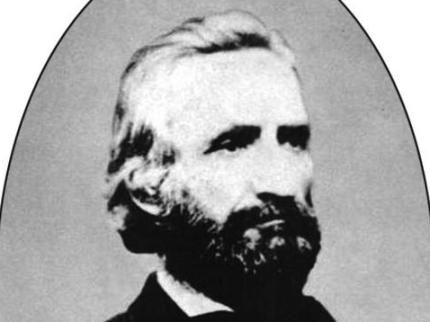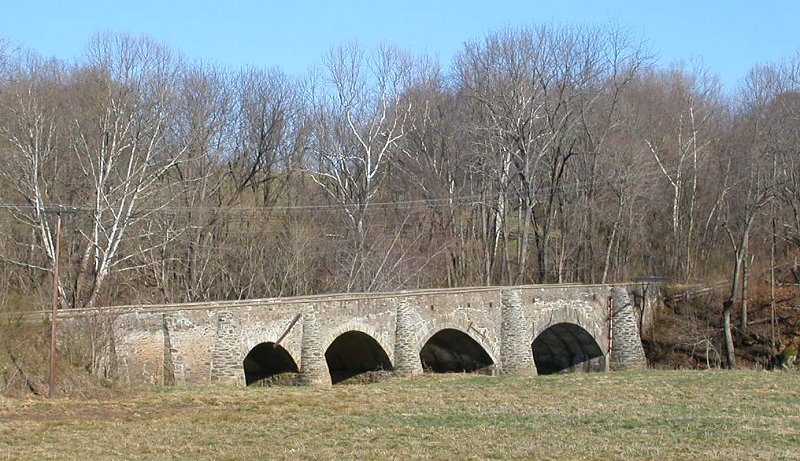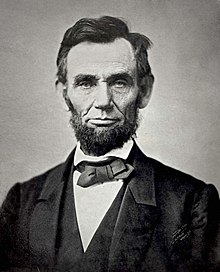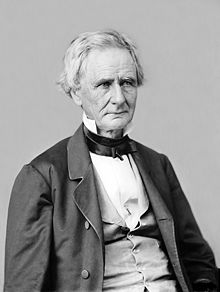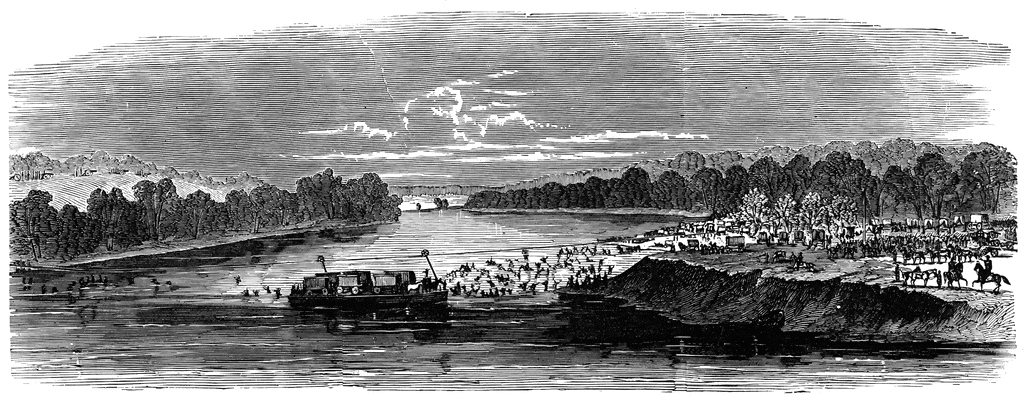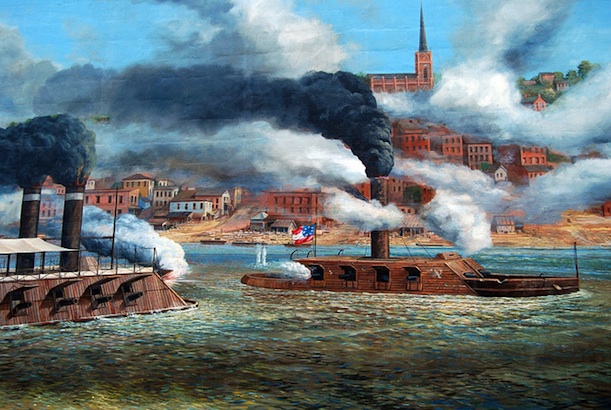 |
| Union Warships at Vicksburg |
CAMP ON BEAR CREEK,
July 4, 1863.
Major-General GRANT:
MY DEAR GENERAL: The telegraph has just announced to me that Vicksburg
is ours; its garrison will march out, stack arms, and return within
their lines as prisoners of war, and that you will occupy the city only
with such troops as you have designated in orders. I can hardly contain
myself. Surely will I not punish any soldier for being "unco happy" this
most glorious anniversary of the birth of a nation, whose sire and
farther was a Washington. Did I not know the honesty, modesty, and
purity of your nature, I would be tempted to follow the examples of my
standard enemies of the press in indulging in wanton flattery; but as a
man and soldier, and ardent friend of yours, I warn you against the
incense of flattery that will fill our land from one extreme to the
other. Be natural and yourself, and this glittering flattery will be as
the passing breeze of the sea on a warm summer day. To me the delicacy
with which you have treated a brave but deluded enemy is more eloquent
than the most gorgeous oratory of an Everett.
This is a day of jubilee, a day of rejoicing to the faithful, and I
would like to hear the shout of my old and patient troops; but I must be
a Gradgrind-I must have facts, knocks, and must go on. Already are my
orders out to give one big huzza and sling the knapsack for new fields.
Tuttle will march at once to Messinger's, Parke to Birdsong, and I will
shift my headquarters to Fox's. McArthur will clear the road of
obstructions made against the coming of the unseen Johnston, and as soon
as Ord and Steele's columns are out, I will push ahead. I want maps,
but of course the first thing is to clear the Big Black River and get up
on the high ground beyond, when we move according to developments. I
did want rest, but I ask nothing until the Mississippi River is ours,
and Sunday and 4th of July are nothing to Americans till the river of
our greatness is free as God made it. Though in the background, as I
ever wish to be in civil war, I feel that I have labored some to secure
this glorious result.
I am, with respect, your friend,
W. T. SHERMAN.
GENERAL ORDERS,
HEADQUARTERS ARMY OF THE POTOMAC,
Numbers 68.
July 4, 1863-4. 15 p. m.
The commanding general, in behalf of the country, thanks the Army of the
Potomac for the glorious result of the recent operations.
An enemy, superior in numbers, and flushed with the pride of a
successful invasion, attempted to overcome and destroy this army.
Utterly baffled and defeated, he has now withdrawn from the contest. The
privations and fatigue the army has endured, and the heroic courage and
gallantry it has displayed, will be matters of history, to be over
remembered.
Our task is not yet accomplished, and the commanding general looks to
the army for greater efforts to drive from our soil every vestige of the
presence of the invader. *
It is right and proper that we should, on all suitable occasions, return
our grateful thanks to the Almighty Disposer of events, that in the
goodness of this providence He has thought fit to give victory to the
cause of the just.
By command of Major-General Meade:
S. WILLIAMS,
Assistant Adjutant-General.
*See Lincoln to Halleck, July 6, p. 566.
HEADQUARTERS ARMY OF NORTHERN VIRGINIA,
July 4, 1863.
Brigadier General J. D. IMBODEN, Commanding, &c.:
GENERAL: In pursuance of verbal directions given you last night, I
desire you to take charge of the train belonging to this army, which I
have directed to be assembled in the vicinity of Cashtown this
afternoon.
I advise that you start the train at least by 5 p. m. to-day, and
endeavor to push it through to Greencastle by to-morrow morning by the
road turning off at Greenwood. Thence you can follow the direct road to
Williamsport, where the train must be put across the Potomac at once,
and advance beyond Falling Waters, whence it can proceed more leisurely
to Winchester. It will be necessary to escort it beyond Martinsburg, at
least as far as Bunker Hill. I have directed two batteries to report to
you this afternoon, to accompany the train, so that you may have
sufficient artillery to guard the front and rear, and distribute along
at intervals, in order to repel any attack that may be made along the
line by parties of the enemy. I advise that in turning off at Greenwood
you have your scouts out on the Chambersburg road until the rear of your
train has passed it, and that you also keep scouts out on your left toward Waynesborough. From
Greencastle you had better send a scouting party through Hagerstown, and
hold that place until the train shall have crossed the river. At the
river you can post your artillery to hold the for, keeping out your
scouts toward Hagerstown, Boonsborough, &c., until further orders.
After the train has reached a place of safety, you can return to the
Maryland side, taking position in front of Hagerstown, so as to keep
open communications. I need not caution you as to preserving quiet and
order in your train, secrecy of your movements, promptness and energy,
and increasing vigilance on the part of yourself and officers. I inclose
a letter to the commanding officer at Winchester, which I wish you
would forward to him immediately upon crossing the river, unless you can
find opportunity to send it securely before.
Very respectfully, your obedient servant,
R. E. LEE,
General.
P. S. - I desire you to to turn back everybody you may meet on the road coming to join this army, to Falling Waters.
Official Records, Series 1, Vol. 24, Part 3, Page 472. Vol. 27, Part 3, Page 594, 967, 968.
Twin victories of a singular nature give the Union cause reason to rejoice. The North now controls the Mississippi River again and has repelled a much feared invasion. Two footnotes-the term "unco happy" used by Sherman is a Scots expression regarding "uncouth" happiness, or that which is overly jubilliant. Also, Grangrind was a character in the Dickens novel "Hard Times" who was noted for his devotion solely to profitable enterprise. In the end of the Vicksburg campaign, Sherman sees greater work ahead. Lee, headed west from Gettysburg is endeavoring to secure his retreat.



